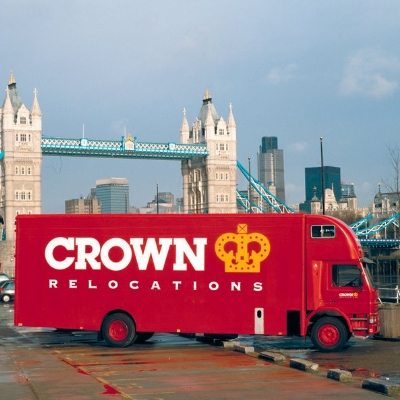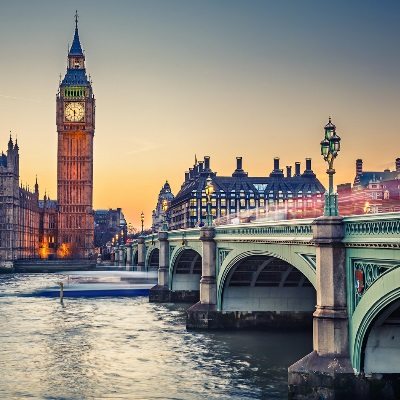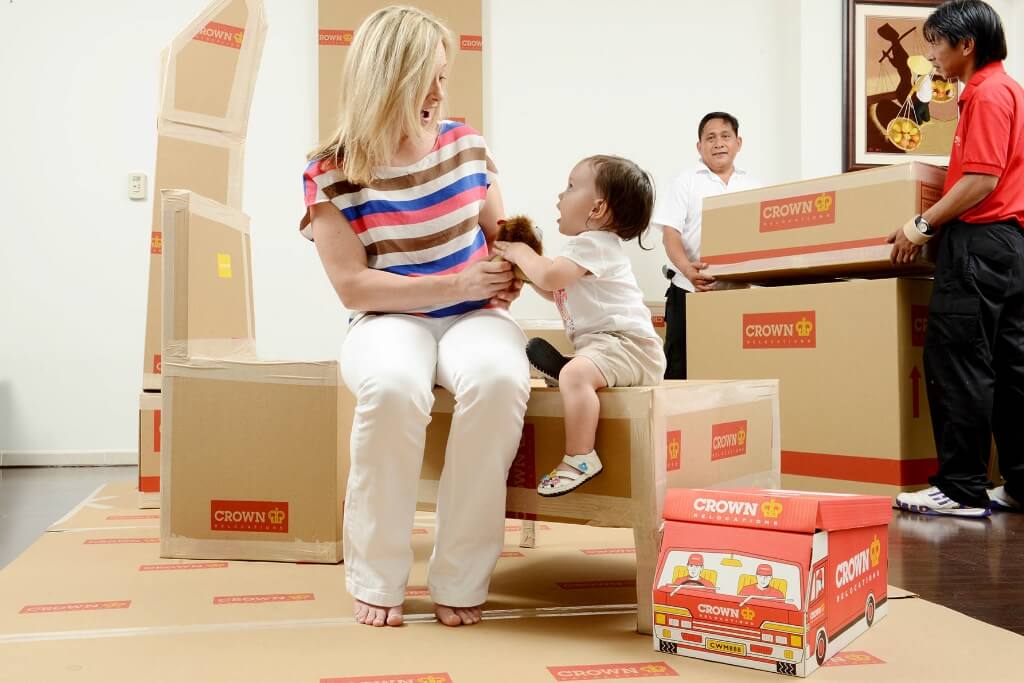Crown Relocations is NZ’s leading moving company.
Are you moving to London? Let us help you plan your relocation and discover everything London has to offer. Crown Relocations are an international moving company, specialising in international removals, storage, overseas moving, movers insurance, relocation services and lots more. We will even relocate your vehicle and pets!
Our team is available to answer any questions you may have about moving to London. They can be reached between 8:00 am and 5:30 pm from Monday to Friday on 0508 227 696 or email nz@crownrelo.com
London is a popular destination for many Kiwis heading overseas. Read our blog London’s Calling for some great pointers to get started.

As one of the great cities of the world, London attracts people looking to live or work from across the globe, and back in 1777, Samuel Johnson wrote “when a man is tired of London, he is tired of life; for there is in London all that life can afford.”
Modern-day London is home to over 13 million people, making it the most populous city in the United Kingdom (UK), covering some 1580kms2 (610 square miles), and is the capital of both England and the United Kingdom.
To be found on the River Thames, in the south-east corner of the country, London boasts an unrivalled multi-cultural environment, as well as renowned arts, education, entertainment, fashion, media and transport industries. With excellent transport links, it’s less than two hours from continental Europe.
London is a tourist mecca, and there are many things to do and see, a good place to start is the official tourist website at www.visitlondon.com and the famous Time Out magazine’s website at www.timeout.com/london.
If you are a member of the European Union (EU) or the European Economic Area (EEA), then you do not need a UK-specific work permit or visa. If you are not a member then you must apply for the relevant work permit or visa before you arrive in the UK — this can be done through your local UK embassy.
New Zealand passport holders may generally enter the UK for six months without a visa on a visa waiver if they are here for a holiday. However, they will still need to satisfy a Border Force officer (UK Customs) when they arrive that they meet the requirements of a visitor category, and aren’t in the UK for any other purpose.
While New Zealanders generally do not need a visa before entering the UK on holiday, there are circumstances when you may need to obtain one before you travel. To live, study and work in the UK you must obtain the necessary visa before you arrive in the country. These visas can only be applied for from your country of residence; this will likely be New Zealand for most New Zealanders. For details of visa and general immigration enquiries, visit the UK Home Office Visas and Immigration page.
The local currency of the UK is the Pound Sterling. Shops and service providers, as a rule, only take sterling. Coins come in denominations of 1p, 2p, 5p, 10p, 20p, £1 and £2 while notes come in £5, £10, £20, £50 and £100, although some of the larger shops will take Euros (the official currency of the European Union).
Many migrants have found it helpful to set up a UK bank account before arriving in the country. This makes it easy for converted money to be transferred straight in to your account, as well as minimising the need to carry cash while travelling. There are many banks in London who offer an easy, online sign-up service.
The best way to convert large sums of money is through online transferral companies, who provide a much cheaper rate.
When moving overseas, it’s important to find a reliable service for converting your money online. Using the right service can help you save a significant amount. For more details, learn about our Money Transfer Services.
London has an excellent public transport system, with regular bus services throughout the city www.wymetro.com, and the city is at hub of the national rail network, with services to cities throughout mainland Britain.
When driving in the UK, a seatbelt must be worn at all times, and operating a mobile phone while driving is illegal.
Members of the EU and those from Commonwealth countries are eligible to drive in the UK for up to twelve months, assuming that they hold an up-to-date license. This includes those from; Australia, Barbados, British Virgin Islands, Canada, Falkland Islands, Hong Kong, Japan, Monaco, New Zealand, Singapore, South Africa, Switzerland and Zimbabwe.
An overseas license can then be exchanged any time within five years for a GB (Great Britain) version.
London is a world leader when it comes to providing educational opportunities, with over 430 universities and more than 400,000 students, the city forms the largest concentration of higher education in Europe.
In terms of the local schooling system, there are both private and state education services available for children in London. Most expatriates choose to enrol their children in private or independent schools (called ‘public schools’ in the UK) this is because state schools are solely based on ‘catchment areas’.
The school year begins in September and ends in July, typical school days run Monday-Friday from 9am to 4pm. Children typically travel to school by car with their parents or take the bus.
Crown can arrange an appointment with a Specialist Education consultant who can provide an in-depth explanation of local education systems, the curricula available and arranging interviews, as well as assist with enrolment requirements. Please contact us for information and rates.
London, like the wider UK, has one of the best healthcare systems in the world. The National Healthcare System (NHS) is the main public healthcare system.
Eligibility for NHS services is dependent on resident status in the UK. Expatriates registering for NHS treatments need photo identification and proof of address.
If you are paying tax or National Insurance in the UK, then you will need to apply for a National Insurance
Number – this is something that will allow assistance with NHS services.
Excellent public healthcare is available all throughout Glasgow, however some expatriates may choose to take out private healthcare, and this is available through companies such as BUPA or PPP.
If the insurance company you were with in New Zealand is a member of the International Federation of Health Funds, you may be able to transfer your policy to the UK without penalty – at a similar level of cover. Check with your insurance provider for details.
When choosing where to live in London, the deciding factor for expats is normally how close you need to be to your place of employment and school. The cost of accommodation and commuting to work are also significant considerations.
Rather than purchasing a home, most expatriates choose to rent, at least at first. This is because house prices in London are very expensive compared to the rest of the United Kingdom.
How much you pay to rent or buy a home depends on which suburb you choose to live in. Kensington and Notting Hill are extremely popular, but are very expensive. The Bayswater and Paddington areas often attract younger professionals and families who are looking for a more affordable option. Victorian architecture is one of the main features of homes in Fulham, Clapham and Chiswick, these areas tend to be popular with families and first-time house buyers. Camden and Hackney appeals mainly to younger people, as they are “trendy” up-and-coming suburbs, with a multi-cultural appeal. Other popular suburbs in London are Brent, Chelsea, Ealing, Islington, Greenwich, Hampstead, Marylebone, Richmond and Wimbledon.
Looking for a home in London can quite often be a daunting task, Crown provides accommodation information for rental or purchase properties and can also arrange for temporary accommodation.
London’s diverse, multi-cultural population means that you are bound to meet people from all different walks of life.
Expatriates most commonly assimilate in to the community through pursuing sports and hobbies they are interested in. There are a number of established expatriate communities that new migrants can join.
A renowned pub/night-life culture provides opportunities to meet new people, and establish friendships with people in the area. Social media and activities such as volunteer work, sports teams, and foreign language classes are all great ways to get to know like-minded people in your area.

Crown Relocations has over 55 years of experience moving individuals and families to London and throughout the UK, contact us today for more information about our services. Read our blog Expert Tips on Moving to the UK for move information.
To arrange a quotation call our office for an obligation FREE quote on: (NZ) 0508 227 696 or you can use our online quote form.

Hi there, you’ve reached us outside of business hours. Please leave your name and number and we’ll be in touch with you soon.
Notifications